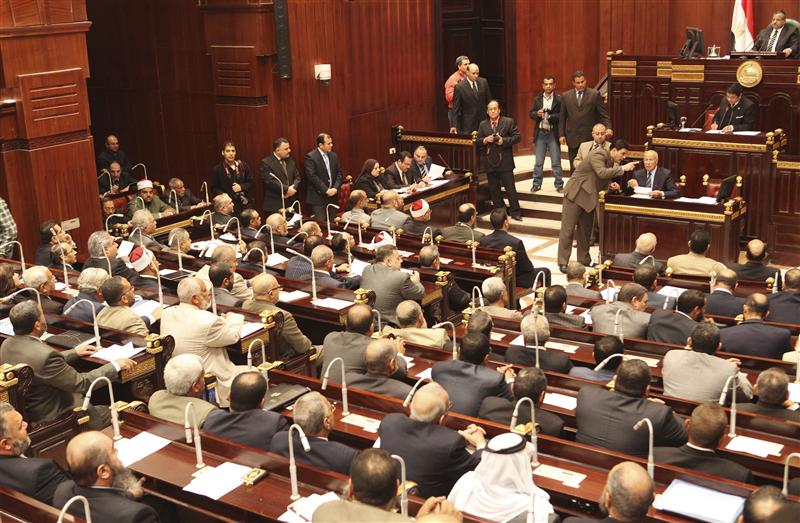Latest NEWS
- Aswat Masriya, the last word
- Roundup of Egypt's press headlines on March 15, 2017
- Roundup of Egypt's press headlines on March 14, 2017
- Former Egyptian President Hosni Mubarak to be released: lawyer
- Roundup of Egypt's press headlines on March 13, 2017
- Egypt's capital set to grow by half a million in 2017
- Egypt's wheat reserves to double with start of harvest -supply min
- Roundup of Egypt's press headlines on March 12, 2017
Egypt Shura Council condemns HRW commentary on demonstration law

A general view shows the Shura Council during its meeting in Cairo December 26, 2012. The Islamist-dominated upper house of parliament (Shura Council), which now holds legislate power, is meeting for the first time on Wednesday, under the newly-approved constitution. REUTERS/Asmaa Waguih
Islamist member of Egypt’s Shura Council (upper house of the parliament), Ezzaldin Al-Komi, condemned on Friday comments made by the international organization, Human Rights Watch (HRW), regarding the newly-drafted demonstration law.
The Human Rights Commission representative in the Shura Council said that the HRW’s notes on the bill would “impede” regulation of the right to peaceful assembly.
Al-Komi criticized the organization’s demands to amend some articles of the draft law on the pretext of the articles being “vague”. He said that this is considered to be “meddling in Egypt’s internal affairs as the bill is still under debate by the Shura Counil,” reported the Middle East News Agency.
The Muslim Brotherhood’s parliamentarian called on the HRW to focus on its role in refusing human rights violations, pointing to the situation in the occupied territories in Palestine and the siege of the Gaza strip.
The Shura Council has recently approved, in principle, the government-proposed law on the right to demonstrate.
The Human Rights Watch had sent a detailed letter to the Egyptian president and the ministry of justice outlining concerns with the draft law in light of Egypt's international human rights obligations.
The letter had urged the government to make amendments and listed recommendations for revisions, saying, “The new bill restricts right to assembly and invites abuse.”
“This law as drafted would severely restrict one of the key human rights that determine Egyptians’ ability to continue to call for bread, freedom, and social justice,” said the HRW’s director of the Middle East and North Africa division Sarah Leah Whitson.
The approved bill had been criticized by different rights groups, claiming that the protest law will infringe on the rights to protest and freedoms of expression and movement.
The law stipulates that protest organizers must inform authorities in advance of plans to protest and the interior ministry has the right to reject a demonstration.
Meanwhile, an aide to the justice minister said that, “the right to demonstrate is inherent in human rights, yet like any other right, its exercise should not harm others. According to this logic, the government drafted the law.”
In the same context, the Shura Council’s committee on national security and human rights had issued a report stating that the law protects the right to peaceful demonstration. It added that it prevents access to thugs among peaceful protesters.










